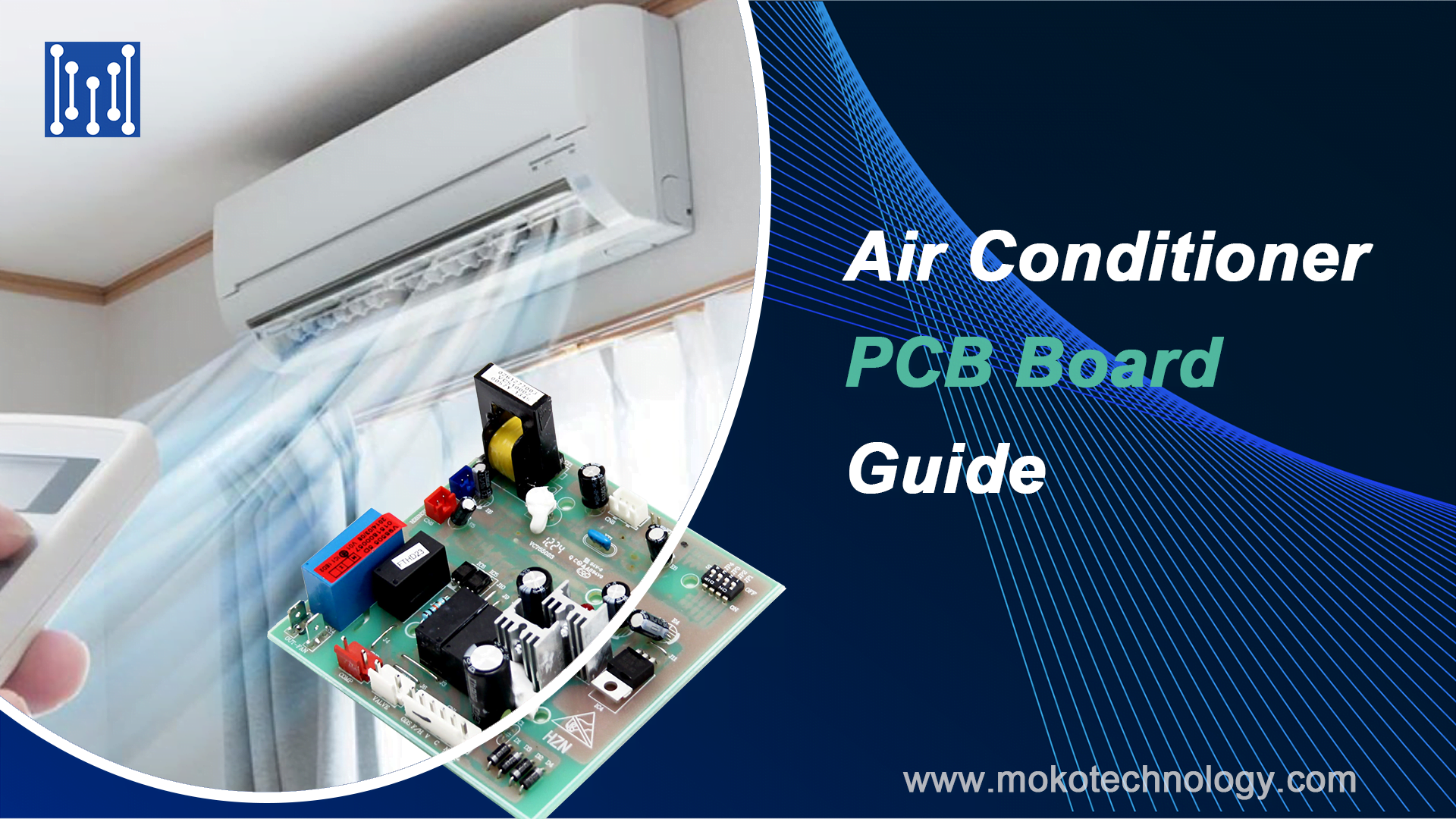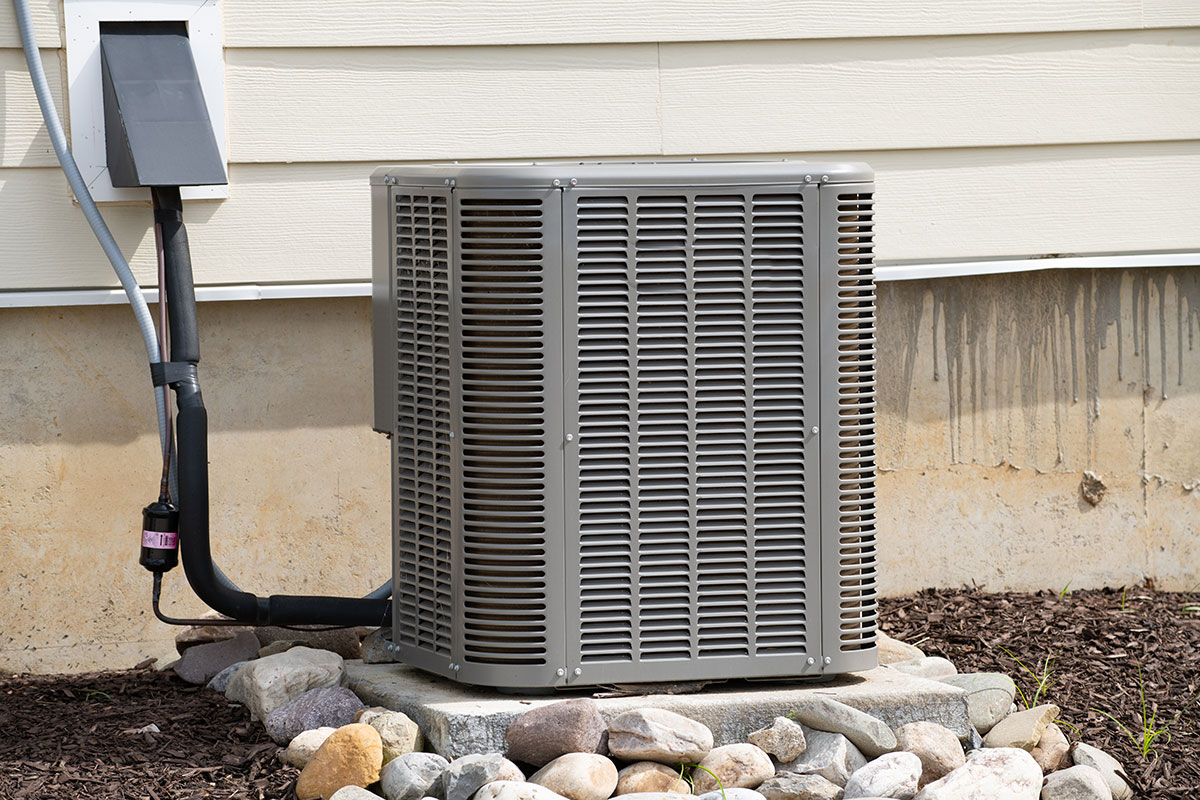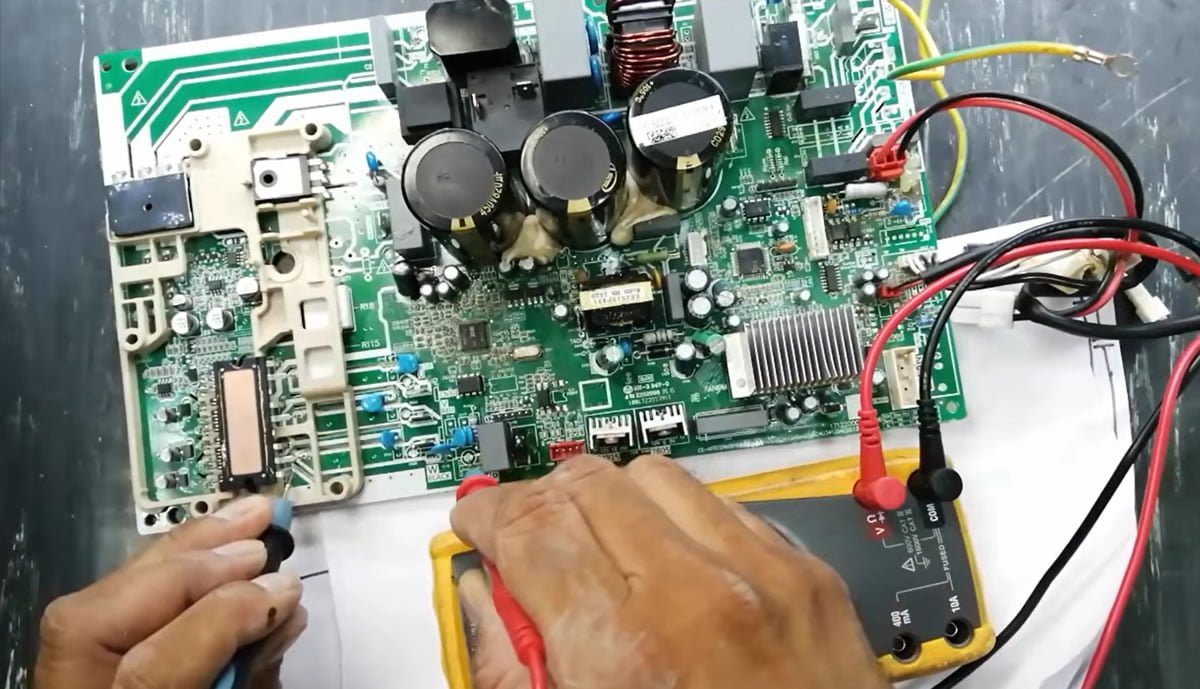Lessons I Learned From Info About How Long Does AC PCB Last

The Essential Guide To PCB Traces Understanding Basics
The Mysterious Lifespan of Your AC's PCB
1. What exactly is an AC PCB, anyway?
Okay, let's talk about the unsung hero of your air conditioning system: the Printed Circuit Board, or PCB. Think of it as the brain of your AC unit. It's that green (usually) board crammed with all sorts of tiny components — resistors, capacitors, microchips — that control pretty much everything. It's the conductor of the cooling symphony, making sure the compressor kicks on, the fan spins, and the temperature stays just right. Without it, your AC is just a big, expensive paperweight. Seriously, it's that important.
This little board is responsible for interpreting signals from the thermostat, managing the cooling cycle, and even monitoring for errors. It's basically the digital brain making your AC smart. When it fails, your AC could do anything from blowing hot air to not turning on at all. So, keeping it in good shape is pretty crucial for summer comfort and avoiding hefty repair bills. It's not something you necessarily think about, until it breaks, right?
The PCB's job is complex, and it handles a lot of power. It's constantly switching circuits and managing voltage, so it takes a beating. A modern AC unit depends on this sophisticated piece of electronics to function properly, even though most people don't even know it exists. Consider it the "wizard behind the curtain" keeping your house cool and comfortable during those sweltering months.
Essentially, it's like the control center for your AC unit, telling all the different parts what to do and when to do it. Its the silent commander, ensuring your home stays at the perfect temperature. And when this silent commander goes down, youll definitely notice it. So, a little knowledge about it can go a long way in preserving your ACs lifespan and saving you from unexpected heat waves.

Understanding AC PCB A New Trend In Electronics IBE
Factors Affecting PCB Longevity
2. What are the enemies of a healthy PCB?
Alright, so how long does this crucial component actually last? Well, that's the million-dollar question, isn't it? There's no magic number, but realistically, you can expect an AC PCB to function well for somewhere between 7 to 15 years. But, much like a good pizza, the longevity depends on the ingredients — or, in this case, the conditions and factors surrounding it. Let's explore what those are.
First, consider the environment. Think about it: Your AC unit is often outside, exposed to the elements. Rain, snow, extreme heat, and even salty air (if you live near the coast) can corrode the PCB and its components over time. Imagine leaving your phone out in the rain not ideal, right? The same principle applies here, only on a larger (and potentially more expensive) scale. Regular cleaning and protecting your outdoor unit can really make a difference.
Next up: power surges. These electrical spikes can fry delicate components on the PCB in an instant. Its like a sudden jolt of electricity that overwhelms the system. A good surge protector is your best defense against this silent killer. Think of it like a bodyguard for your AC, deflecting those harmful surges before they can do any damage. It's a small investment that can save you a lot of grief in the long run.
And finally, let's talk about maintenance. Or, more accurately, the lack thereof. Neglecting routine AC maintenance, like cleaning the coils and changing the filters, can cause the unit to work harder, putting extra stress on the PCB. Over time, this added stress can lead to premature failure. Its like asking a marathon runner to sprint the entire race they might do it, but they definitely won't last as long. Regular check-ups and tune-ups are essential for keeping your AC, and its precious PCB, running smoothly. Also consider the age and quality of components. Cheaper components might fail faster.

How Long Does Air Conditioner Capacitor Last Gree Mechanical Yonkers
Spotting the Warning Signs
3. How do you know if your PCB is on its last leg?
Okay, so how do you know when your AC's PCB is heading south? It's not always obvious, but there are some telltale signs that you can watch out for. Recognizing these early warning signs can save you from a complete AC breakdown on the hottest day of the year. So, pay attention!
One of the most common signs is inconsistent cooling. If your AC is blowing hot air sometimes, and cold air other times, that could indicate a problem with the PCB's ability to regulate the cooling cycle. Think of it like a dimmer switch that's flickering the light isn't consistently bright. This inconsistency can point to a failing component on the PCB that's struggling to maintain a stable connection.
Another red flag is the AC unit turning on and off frequently, a phenomenon known as short cycling. This can be caused by a faulty sensor or relay on the PCB. The PCB is getting bad information and shutting down the compressor too soon. This erratic behavior puts extra strain on the AC system and can ultimately lead to more serious problems. It's like repeatedly starting and stopping your car engine — it's not good for it.
Also, pay attention to any strange noises. Buzzing, clicking, or hissing sounds coming from the AC unit could indicate a problem with the PCB. These noises could be caused by damaged components or loose connections on the board. Its like hearing strange noises coming from your car engine it's a sign that something isn't right and needs to be checked out. Finally, if your AC simply refuses to turn on at all, that could be a sign of a completely failed PCB. It's like the main circuit breaker tripping in your house — nothing works.
In this case, it's best to call a qualified HVAC technician to diagnose the problem. They can use specialized equipment to test the PCB and determine if it needs to be repaired or replaced. Remember, ignoring these warning signs can lead to more extensive damage and a much bigger repair bill down the road.

Extending the Life of Your AC PCB
4. What can you do to help your PCB live longer?
Alright, so you know what can kill your AC PCB. Now, let's talk about how to keep it healthy and extend its lifespan. Think of it like taking care of your car — regular maintenance and preventative measures can go a long way in preventing costly repairs down the road. Here are some things you can do.
First, invest in a good surge protector. As mentioned earlier, power surges are a major threat to electronic components, including the PCB. A surge protector will shield your AC unit from voltage spikes and prevent damage to the delicate components on the board. It's like having an insurance policy for your AC — it protects you from unexpected financial losses. Look for a surge protector specifically designed for HVAC systems.
Next up: regular AC maintenance. This includes cleaning the coils, changing the filters, and inspecting the unit for any signs of damage. A clean and well-maintained AC unit will operate more efficiently, putting less stress on the PCB. It's like getting regular oil changes for your car — it keeps the engine running smoothly and prevents breakdowns. Schedule a professional tune-up at least once a year.
Also, consider shading your outdoor AC unit. Direct sunlight can overheat the unit and cause the PCB to fail prematurely. Planting trees or shrubs around the unit can provide shade and keep it cooler. It's like wearing sunscreen to protect your skin from the sun — it prevents damage and extends its lifespan. Make sure the plants dont block airflow to the unit, though.
Finally, be mindful of the voltage requirements of your AC unit. Make sure that the electrical circuit is properly sized and that there are no other appliances drawing too much power from the same circuit. An overloaded circuit can cause voltage fluctuations that can damage the PCB. It's like making sure you have the right size tires on your car — using the wrong size can cause problems. If you're not sure about the electrical requirements of your AC unit, consult with a qualified electrician.

PCB Replacement and Repair
5. Fix it or ditch it?
So, your AC PCB has kicked the bucket. What now? Well, you generally have two options: repair or replacement. Which one is right for you depends on the extent of the damage, the age of your AC unit, and your budget. Let's break it down.
Repairing the PCB can be a viable option if the damage is relatively minor. A qualified HVAC technician can often replace individual components on the board, such as capacitors, resistors, or relays. This can be a more cost-effective solution than replacing the entire PCB. Think of it like fixing a flat tire instead of buying a whole new set — it saves you money. However, repair isn't always possible. If the PCB is severely damaged, or if the components are no longer available, replacement may be the only option.
Replacing the PCB involves installing a new board in your AC unit. This is a more expensive option than repair, but it ensures that your AC unit is running with a fully functional and reliable PCB. Its like getting a brand-new engine for your car — it gives you peace of mind. When choosing a replacement PCB, make sure it's compatible with your AC unit. An incompatible PCB can cause serious damage to your AC system.
Before making a decision, get a professional opinion from a qualified HVAC technician. They can assess the damage and recommend the best course of action. They can also provide you with a quote for both repair and replacement, so you can make an informed decision based on your budget. Think of it like getting a second opinion from a doctor — it helps you make sure you're making the right choice. Also, consider the age of your unit. If it's old, more problems might arise soon, making full replacement a worthwhile investment.
It is also important to consider the cost of repair versus replacement. If the cost of repair is close to the cost of replacement, it may be more economical to replace the PCB, especially if the AC unit is getting older. This is because a new PCB will likely last longer and provide more reliable performance than a repaired one. Plus, a new board will come with a warranty. Replacing it gives you a fresh start and can ensure the long-term efficient operation of your AC unit. This prevents you from needing frequent, and perhaps costly, repairs down the line.

Understanding AC PCB A New Trend In Electronics IBE
FAQ
6. Everything you wanted to know about AC PCBs but were afraid to ask.
Q: How much does it cost to replace an AC PCB?A: The cost can vary wildly, but generally, you're looking at somewhere between $200 to $800, including labor. It depends on the AC unit's model and the complexity of the board. Getting a few quotes is always a smart move.
Q: Can I replace the AC PCB myself?A: While some handy homeowners might be tempted, it's generally not recommended unless you have extensive electrical and HVAC knowledge. PCBs are delicate and contain sensitive components. Incorrect installation can damage the new board or even the entire AC unit. Best to leave it to the pros!
Q: What happens if I don't replace a bad AC PCB?A: Well, your AC won't work, plain and simple. Or, it might work sporadically and inefficiently, leading to higher energy bills and potential damage to other components. Ignoring a faulty PCB is like ignoring a check engine light — it's just asking for trouble.
Q: Are some AC PCB brands more reliable than others?A: Generally, yes. Units with higher-quality components from reputable manufacturers tend to have PCBs that last longer. While you can't specifically pick the brand of PCB within an AC unit, researching the overall reliability of different AC brands can be a good indicator.